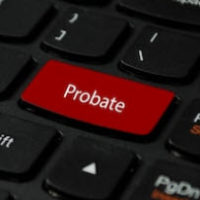The Fiduciary Duties of the Personal Representative of an Estate, According to Florida Law

If a deceased relative has named you the personal representative of his or her estate, do not panic. Being a personal representative of an estate, also known as an executor or administrator in states other than Florida, is a job with a beginning and an end. Serving as the personal representative of an estate comes with lots of responsibilities that are unfamiliar to most people. In all likelihood, you are the personal representative of an estate because the deceased felt he or she could trust you. You can always ask for help from a Florida estate and probate lawyer if you need guidance administering a will.
What Are Fiduciary Duties?
Fiduciary duties are obligations owed to beneficiaries of a trust to by the person in charge of a trust. Being a personal representative of an estate is like being the person who has the authority to write checks of a small business in the sense that your job is to follow instructions so that the money is used for its intended purpose. The personal representative of an estate is not always a beneficiary; in other words, the deceased person can name you as a personal representative even if he did not leave you any money in his will. (Most wills contain a provision that the personal representative should receive a certain amount of money when the estate settles, as payment for administering the estate.) The personal representative does not need to be a relative or friend of the deceased person but a friend must be a resident of Florida; it can even be a bank or other company. Some people specify in their wills which attorney or law firm they want to represent the personal representative, but this clause in the will is usually not legally binding. As the personal representative of an estate in Florida, you have the right to choose your own estate and probate attorney.
Duties of the Personal Representative of an Estate
The personal representative of an estate must do the following:
- Locate the deceased person’s assets, including but not limited to bank accounts and real estate properties.
- Make a reasonable attempt to locate entities to which the deceased person still owes money. These efforts include publishing a notice requiring creditors to file a claim against the estate. If you have the contact information of any reasonably ascertainable creditors, you are required to contact them directly advising them of their right to file a claim.
- Determine whether each claim by a creditor is valid. If it is valid, pay it. If not, object to it and defend the estate in court if the creditor pursues the claim.
- File the deceased person’s last tax return. File a tax return each year from the time of the decedent’s death until the estate closes. Except in the case of very wealthy people or estates in which disputes arise, most estates settle in less than a year.
- Pay the amounts specified in the will to the deceased person’s family members and other beneficiaries, if any.
Contact Mark R. Manceri About Probate Law
Contact Mark Manceri in Pompano Beach, Broward County, Florida to discuss your questions if you have been named as the personal representative of an estate. He can assist you throughout each step of the process.
Resource:

 Mark R. Manceri, P.A. is a boutique law firm that specializes in Estate, Trust and Guardianship litigation. These matters include Will and Trust contests involving lack of capacity, undue influence, forgery, improper execution and tortious interference...
Mark R. Manceri, P.A. is a boutique law firm that specializes in Estate, Trust and Guardianship litigation. These matters include Will and Trust contests involving lack of capacity, undue influence, forgery, improper execution and tortious interference...